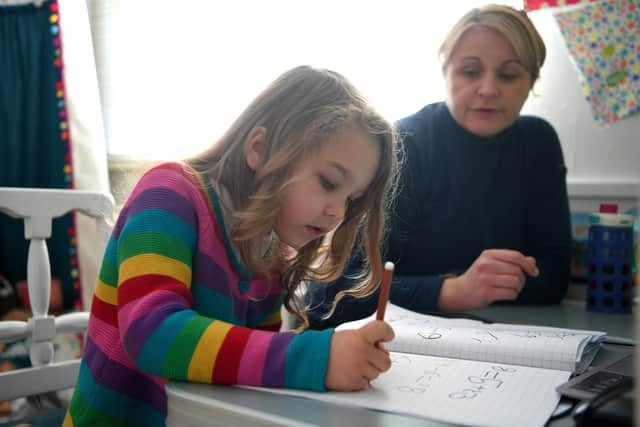Post-Covid surge in home-schooling and absenteeism raises a number of worrying questions – Stephen Jardine
In most parts of Scotland, the school holidays are now underway. After a busy final term, pupils and teachers have the chance to relax and enjoy a break from learning and lessons. However, not every child in Scotland has been working flat out at school.
Since the pandemic, there has been a worrying increase in the number of children missing education. New research this week, from the London School of Economics, the University of Strathclyde and the University of Exeter, suggests a staggering rise in the figures for kids skipping at least one day a fortnight. Here in Scotland, the latest figures show the number of children missing more than half of the school year was up 34 per cent in 2021-22 compared to 2019/20.
Advertisement
Hide AdAdvertisement
Hide AdThe pandemic changed everything. Attendance rates have traditionally been worse in disadvantaged areas but the new figures show absenteeism now affects the entire pupil population in primary and secondary schools across the country. Covid closures broke the bond some families had with school and it has never been fixed.
Presenting the data to MPs, schools minister Nick Gibb suggested greater caution around illness was a significant factor. Parents who before would have sent a coughing child to school with a packet of throat lozenges and a note excusing them from cross-country are now working from home. That means keeping kids off is an option in a way it never was before.
The UK Government’s response is to urge parents to keep sending a child to school if they have a mild cold to try to improve attendance levels. Common sense needs to be the watchword here. Another factor has been the increase in home-schooling since the pandemic. Parents who were forced to dip a toe in the water when classrooms were closed due to Covid have decided learning at home is actually the best option for their children.
In Scotland, the number of home-schooled children trebled between 2018 and 2022. While it may be the best choice for some children, we still don’t have a national register of children being taught at home. Instead, Scottish Government guidance says “although there is no statutory duty upon parents to inform the local authority that they are home educating if they do not require consent, many authorities would prefer home educators in their area, or moving into their area, to contact them”. Preferring people to do something doesn’t seem to go far enough when a child’s education matters.
Home-schooling is undoubtedly right for some but if increasing numbers of children are not in local authority education, we need to have a clear understanding of exactly what is going on. For those children caught up in persistent absenteeism, there are a number of concerns. Apart from reduced attainment, their social skills are also impacted and they are likely to spend more time staring at screens and social media, leading to mental health challenges.


After a busy term filled with exams, everyone involved in Scottish education deserves a well-earned break. But when the balmy days of summer are over and school returns, we need to ensure that every child who should be in the system is attending and engaged, because the nation we want Scotland to be rests on the shoulders of a good education for everyone.
Comments
Want to join the conversation? Please or to comment on this article.